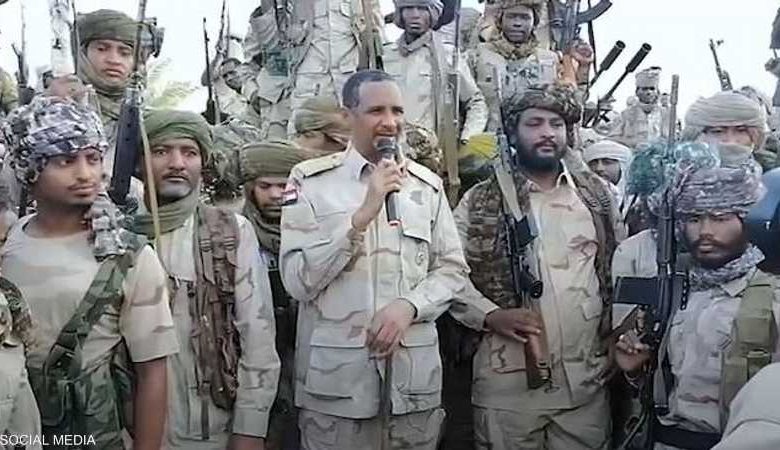Reports
Washington’s Sanctions Against Militia Leader: Multiple Messages

Sudan Events – Agencies
The surprising step announced by the U.S. State Department against the leader of the Rapid Support Forces militia, Mohamed Hamdan Dagalo (Hemedti), carried a range of political and diplomatic messages. These messages addressed the militia’s aggression against Sudan and were noticed by regional and international actors, as well as political forces that have, since the onset of the conflict, bet on the militia’s success to secure a share of power, privileges, and positions. The U.S. sanctions against Hemedti are not merely punitive measures but rather a strategic tool to send multifaceted messages. They aim to create political balance in Sudan, support peace, genuinely protect civilians, and address the harm caused by the militia, while indirectly warning both internal and external forces involved in the conflict.
Domestic Implications
One key internal signal from these sanctions, targeting the top leader of the militia and its symbolic figurehead, is that the U.S. is adopting a new vision. This vision is rooted in genuine support for stability, rejection of violations, and holding chaos instigators accountable through sanctions. The U.S. views Hemedti and his forces as primary perpetrators of the grave violations occurring across Sudan since April 2023. This shift peaked with these sanctions, especially as the forces have been directly accused of severe abuses, including targeting civilians, sexual violence, looting, and forced displacement.
Impact on Political Forces
Undoubtedly, the U.S.’s historical image as a champion of democracy and human rights has enabled some political forces to remain silent, hoping for the militia’s victory and subsequent transfer of power to a government aligned with American democratic ideals. This silence encouraged local groups, often labeled as “progressive,” to rally under the U.S. banner, advocating for civilian democratic rule while ignoring the militia’s violations. The recent U.S. shift, marked by these sanctions, sends a clear message to these political forces: reliance on America’s symbolic slogans and tolerance of militia atrocities is no longer viable.
Restricting Movement
Although largely symbolic, these sanctions carry powerful messages with tangible implications. By restricting Hemedti’s international movement and depriving him of external financial support—through freezing his assets and weakening his ability to fund military operations—the sanctions serve as a warning to regional and international supporters, particularly the UAE. They signal that continued support for the militia is now unacceptable and cannot be overlooked.
Support for Negotiations
The U.S. and its allies have, in the past, lumped the Sudanese Armed Forces and the militia into a single category, framing the conflict as merely a struggle between two generals. This approach equated the aggressor with the national forces defending the country. However, these recent sanctions may mark a turning point, potentially encouraging progress in negotiations. Unlike earlier initiatives, which faltered due to this false equivalence, the new measures signal a shift in how the U.S. perceives the conflict.
The decision also underscores that the U.S. is monitoring regional involvement in Sudan’s conflict, especially from nations providing financial or military support to the Rapid Support Forces, such as the UAE, Chad, and others.
Correcting Mistakes
These sanctions may also reflect an attempt by President Joe Biden’s administration to rectify past mistakes. They showcase a commitment to human rights and the rule of law, particularly as the Rapid Support Forces have been accused of widespread crimes in Darfur and other regions. As Biden’s administration prepares to leave office, it seems eager to address its earlier inaction on human rights violations—a historical stain that could impact the Democratic Party’s prospects in upcoming elections, where American voters are particularly sensitive to such issues.
Source: “Sudanese Echoes”



